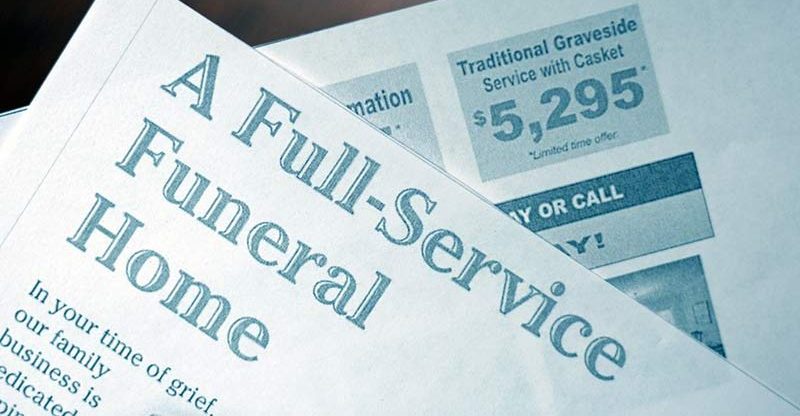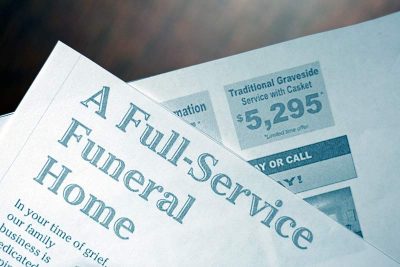
Funeral homes prey on the vulnerable – don’t get coerced

Navajo Times | Ravonelle Yazzie When deciding on a funeral for a loved one, make sure you get an itemized list of services in writing, experts advise.
Editor’s note: This is the fifth in a series about financial literacy.
WINDOW ROCK
Over the last 20 years, Tobi Benally has gotten an inside look at the funeral industry in border towns of the Navajo Nation.
“It’s all about money,” he said. “How much money you can make.”

Navajo Times | Ravonelle Yazzie
When deciding on a funeral for a loved one, make sure you get an itemized list of services in writing, experts advise.
Funeral homes often push pricey funeral packages that many families can’t afford, as the median income for the Navajo Nation is $27,389. “Navajo people are an easy target because we don’t know enough about (the funeral industry) and we don’t want to know,” said Benally, a Diné casket maker.
Because of Navajo culture, many Navajo people shy away from conversations about funeral services and death. “They (funeral homes) pretty much tell us what to do,” Benally said. “It’s really unfortunate.”
To avoid paying for services and items consumers don’t need, Benally recommends asking for a written, itemized general price list. Funeral homes by law have to provide consumers with a general price list when they ask for it. If they don’t provide an itemized price list, consumers can report the funeral home to the Federal Trade Commission.
“Think of it this way: If you go into a restaurant, you sit down and you look at your menu and you say ‘This is what I want,’” he said. “You tell them ‘This is what I want,’ and that’s it.” If they continue to push high-priced items or packages, say, “If you don’t stop, I’m going to report you,” advised Benally.
Funeral homes can face heavy fines for not providing a general price list and pushing expensive service packages. “Six, eight, ten, twelve thousand dollars for a funeral, those are ridiculous numbers,” he said.
To read the full article, pick up your copy of the Navajo Times at your nearest newsstand Thursday mornings!
Are you a digital subscriber? Read the most recent three weeks of stories by logging in to your online account.







 Highway 264,
Highway 264, I-40, WB @ Winslow
I-40, WB @ Winslow